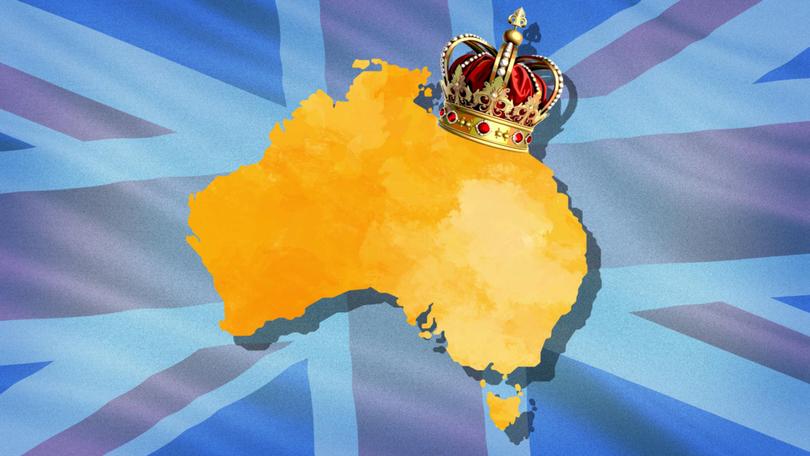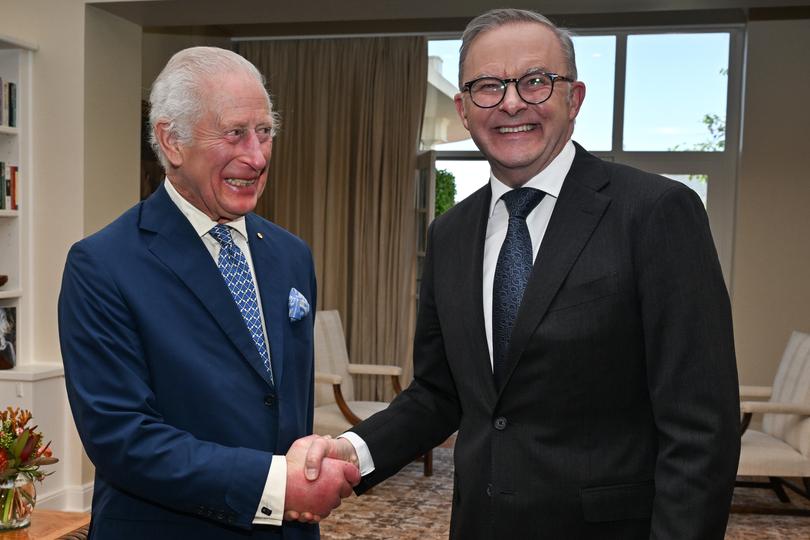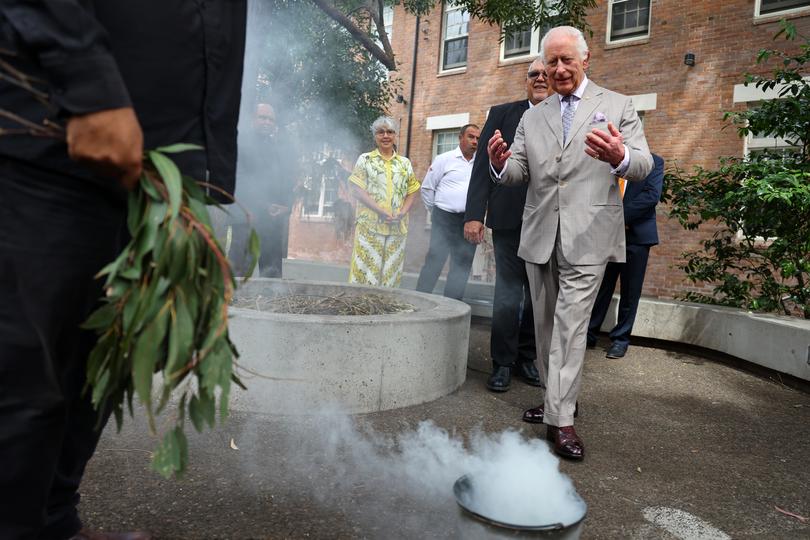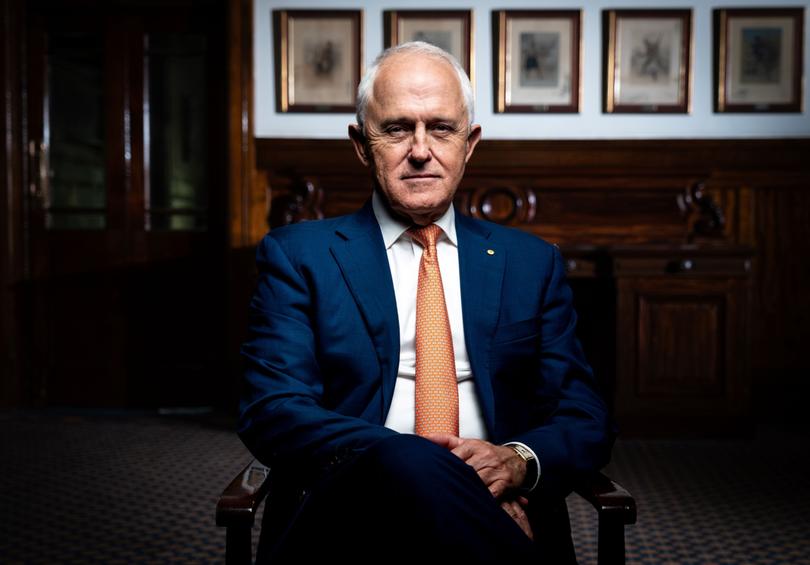LATIKA M BOURKE: Republican movement has been given the royal shove
LATIKA M BOURKE: The republican movement needs to radically overhaul its approach after Labor abandoned it, putting it off for at least a generation and consigning it to the far left.

Labor has given up on a republic and consigned the cause to the far Left, ensuring the idea is put off for at least a generation, if not generations to come.
For those who want a republic, the movement needs to radically overhaul its approach if it hopes to mainstream the idea and gain back political support.
The first is to take up the case on a bipartisan or cross-party basis which can be done regardless of the everyday concerns that rightly occupy the bulk of the political space. Right now it’s cost of living and housing affordability.
Sign up to The Nightly's newsletters.
Get the first look at the digital newspaper, curated daily stories and breaking headlines delivered to your inbox.
By continuing you agree to our Terms and Privacy Policy.There will never be a good time when those issues are no longer priorities. The claim that making the case for an Australian head of state is self-indulgent, as former Labor leader and retiring cabinet Minister Bill Shorten told The Nightly this week, is wrong.
If the Australian public reaches a point where a consensus thinks that switching is viable, it won’t be because groceries have returned to 1980s prices and everyone can suddenly afford a house. It will be because they were persuaded that doing so is of so little cost, that it’s a net benefit.
And this is the second issue that republicans must address: cost, not Charles.
Australians were told that the time to reopen the republic debate would be when Queen Elizabeth II died.
As the leader of the failed 1999 referendum campaign and co-founder of the Australian Republican Movement, Malcolm Turnbull said after meeting the Queen when prime minister in 2017: “Even republicans like myself can be, and in my case are, very strong Elizabethans.”
“I never bought the fairly morbid passing of Queen Elizabeth (argument),” Mr Shorten told me recently.
“That was a Malcolm Turnbull excuse to do nothing or to do little.”
Whether Mr Turnbull’s view was wishful thinking or a misread, either way, it was just as wrong as Anthony Albanese’s claim in 2019 that a republic was an idea “whose time had come.”
At least in Mr Turnbull’s case, he actively led a campaign to try and have it realised. By contrast, the current prime minister shelved his republic minister after losing the Voice referendum saying he had never committed to holding a second one.
It’s not hard to see why. Republicans can’t get a grip on how to make the case and the transition from Elizabeth to Charles made clear to those of us who had never seen a coronation before what is one of the keys to the monarchy’s endurance.

The immediate ascension of Charles to the throne, set against the backdrop of national and worldwide mourning was deft as it left no room to raise the republic debate.
The subsequent acceptance of the once deeply unpopular Charles as King reinforces that Australia’s maintenance of the monarchy was never about personality but always about cost – not in the financial sense but in terms of disruption.
What will this cost me and why risk the cost for a system that works okay, have always been the only questions republicans had to answer.
And in 2024, the movement is no closer to answering those questions. It can only progress if it settles once and for all how the head of state will be elected — directly by the people or appointed by the government of the day, as the Governor-General is currently appointed. It also needs to argue that change will be as minimal and easy as the handover between Elizabeth and her son.
It cannot be seen to add or trigger uncertainty to the political system which has only just stabilised after the last decade of rotating prime ministers.
Focussing the campaign on Charles or his heir Prince William, or as PM Anthony Albanese has done in the past, about the disgraced Prince Andrew, will never convince Australians to ditch a system they’ve accepted without a great deal of question.
This is why at the parliamentary level, Labor’s decision to ditch the idea for the foreseeable future is a mistake. Liberals who also back an Australian should fear the forfeiture.
It leaves the cause in the hands of those most determined to kill it — the Greens and far-left activists like Independent Senator Lidia Thorpe who made worldwide headlines with her noisy and heartfelt protest against the King in Canberra on Monday.

As an Indigenous woman, Thorpe has every right to protest, as she passionately did, but it is certain to embarrass decent Australians who think attention-seeking stunts are not the Australian way and certainly not on the international stage.
While it was emotive and powerful, it was ultimately as counter-productive as the statement released by Greens Senator Mehreen Farqui in which she claimed preserving the royal family was to preserve white supremacy.
It is the same mistake that the Australian Republican Movement has made by trying to badge this week’s royal visit as a “farewell tour” and that monarchists have made in trying to oversell Charles’ personality to the public.
None of these tactics have worked in the past and won’t in the future.
Paradoxically, the only person who seems capable of discussing this issue with maturity is the King himself, who told Commonwealth governments in Rwanda: “Each member’s constitutional arrangement, as republic or monarchy, is purely a matter for each member country to decide.”
“The benefit of long life brings me the experience that arrangements such as these can change, calmly and without rancour,” he said.
It was a message backed up by his private secretary who told the Australian Republican Movement ahead of this week’s visit that the King had no intention of standing in the way of a referendum.

This is all royal shorthand for: “Australia you do you, but let’s keep it classy, okay?”
Ironically, Charles is showing a better read of the Australian public than those who argue he is a faraway relic living it up in luxury in an overseas castle.
Because if a republic is to be realised it will only be done in the spirit the King outlined.
For people to back change they will need to feel it is easy, comfortable and critically, unifying.
Selling a republic as a radical defining moment would only spook those who might be open to the idea. It needs to be grassroots and equally, if not more, reflective of the mood in the regions as in the cities.
And by logic, the time has never been riper.
Australia’s Anglo-ancestry is more diluted than at any point in time since European settlement.
As the former Labor strategist Kos Samaras noted, only 33 per cent of all Australians have an ancestral connection to England.
Saying the King of Australia has touched down in Sydney is as weird as it sounds and will jar for many Australians who bear no ill will to the British or the UK’s constitutional arrangements.
While Australia’s face is changing, its history never will but neither will its future identity if the common-sense republicans leave the cause in the hands of the far Left.

